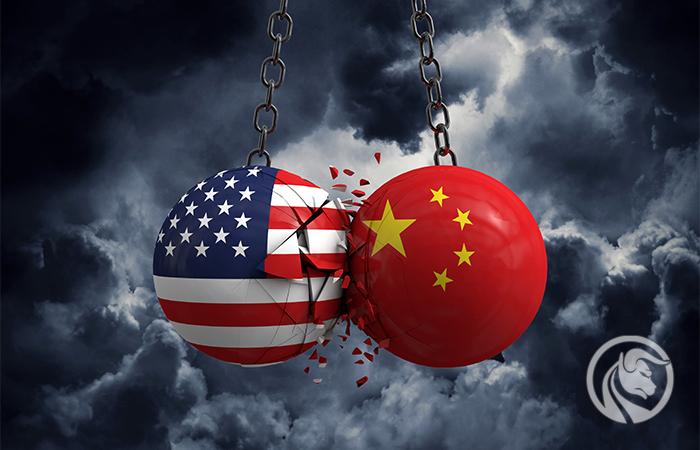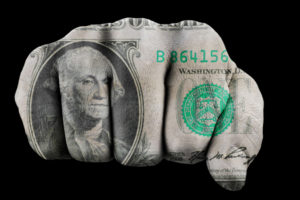No longer King Dollar? It's not so simple!
The dollar's status as the world's dominant currency has come under increasing scrutiny recently due to rivalry with China, the fallout from the Russian invasion of Ukraine, and disputes over the US debt ceiling. The dollar's share of official foreign reserves fell to a 20-year low of 58% in the fourth quarter of 2022, fueling speculation about why there will be de-dollarization and perhaps why it won't.
The declining status of the reserve currency
The share of the US dollar in official foreign reserves fell to a 20-year low of 58% in the fourth quarter of 2022, data shows Of the International Monetary Fund.
What happened last year was a very sharp drop in the dollar in real terms. This was in response to the freezing of half of Russia's $640 billion worth of gold and currency reserves after the 2022 invasion of Ukraine. This has caused countries such as Saudi Arabia, China, India and Turkey to rethink diversification towards other currencies.
However, the whole situation needs to be looked at more broadly. The share of the dollar in central banks' foreign reserves in the final quarter of 2022 reached its lowest level in two decades, but the move was gradual and is now almost at a level similar to that in 1995.
Central banks allocate bad-day funds in dollars in case they need to maintain exchange rates during economic crises. If the currency depreciates too much against the dollar, oil and other commodities traded in US currency become expensive, raising the cost of living and fueling inflation.
Many currencies, from the Hong Kong dollar to the Indian rupee, are pegged to the dollar for similar reasons.
Commodity trading matters
The almighty dollar has mastered commodity trading, allowing Washington to impede market access for producer countries from Russia to Venezuela and Iran.
But the trade is changing! India buys Russian oil in dirhams and rubles. China switched to the yuan to buy Russian oil, coal and metals worth about $88 billion. Chinese national oil company CNOOC and French Totalenergies completed their first yuan LNG trade in March.
According to the Bank for International Settlements (BIS), the share of the yuan in global OTC transactions in the foreign exchange market has increased from almost zero 15 years ago to 7% today.
Too complicated a system
De-dollarization would require a vast and complex network of exporters, importers, currency traders, debt issuers and lenders to decide independently on the use of other currencies.
According to data UNTIL the dollar is on one side of nearly 90% of the world's forex transactions, which is about $6,6 trillion in 2022.
The BIS said about half of all foreign debt is in US dollars and half of all world trade is invoiced in US dollars.
So there seems to be no mechanism to get banks, companies, and governments to change their behavior at the same time.
What future?
While there may not be a single successor to the dollar, alternatives springing up like mushrooms could create a multipolar world. Global central banks are looking at a wider range of assets, including corporate debt, tangible assets such as real estate, and other currencies.
Since large bank deposits are not always insured, companies use government bonds as an alternative to cash. The status of the dollar is therefore supported by the $23 trillion US treasury market - seen as a safe haven for money.
The international stock of Treasury securities is vast and there is no credible alternative yet. The bond market in Germany is relatively small at just over $2 trillion.
Commodity makers may agree to trade with China in yuan, but recycling cash into Chinese government bonds remains difficult due to difficulty opening accounts and regulatory uncertainty






















![Forex Club – Tax 9 – Settle tax on a foreign broker [Download the Application] Forex Club - Tax 9](https://forexclub.pl/wp-content/uploads/2024/02/Forex-Club-Podatek-9-184x120.jpg?v=1709046278)
![Trading View platform – solutions tailored to the needs of traders [Review] trading view review](https://forexclub.pl/wp-content/uploads/2024/03/trading-view-recenzja-184x120.jpg?v=1709558918)
![How to connect your FP Markets account to the Trading View platform [Guide] fp markets trading view](https://forexclub.pl/wp-content/uploads/2024/02/fp-markets-trading-view-184x120.jpg?v=1708677291)
![How to invest in ChatGPT and AI? Stocks and ETFs [Guide] how to invest in chatgpt and artificial intelligence](https://forexclub.pl/wp-content/uploads/2023/02/jak-inwestowac-w-chatgpt-i-sztuczna-inteligencje-184x120.jpg?v=1676364263)


![WeWork – the anatomy of the collapse of a company valued at $47 billion [WeWork, part II] wework bankruptcy story](https://forexclub.pl/wp-content/uploads/2024/04/wework-bankructwo-historia-184x120.jpg?v=1711729561)
![Adam Neumann – the man who screwed up Softbank [WeWork, part AND] adam neumann wework](https://forexclub.pl/wp-content/uploads/2024/04/adam-neumann-wework-184x120.jpg?v=1711728724)





![How to transfer shares to another brokerage office [Procedure description] how to transfer shares to another brokerage house](https://forexclub.pl/wp-content/uploads/2024/03/jak-przeniesc-akcje-do-innego-biura-maklerskiego-184x120.jpg?v=1709556924)

![The most common mistakes of a beginner trader - Mr Yogi [VIDEO] Scalping - The most common mistakes of a beginner trader - VIDEO](https://forexclub.pl/wp-content/uploads/2024/03/Scalping-Najczestsze-bledy-poczatkujacego-tradera-VIDEO-184x120.jpg?v=1711601376)
![Learning patience: No position is also a position - Mr Yogi [VIDEO] Scalping - Learning patience - No position is also a position - VIDEO](https://forexclub.pl/wp-content/uploads/2024/03/Scalping-Nauka-cierpliwosci-Brak-pozycji-to-tez-pozycja-VIDEO-184x120.jpg?v=1710999249)
![When to exit a position and how to minimize losses - Mr Yogi [VIDEO] Scalping - When to exit a position and how to minimize losses - VIDEO](https://forexclub.pl/wp-content/uploads/2024/03/Scalping-Kiedy-wyjsc-z-pozycji-i-jak-minimalizowac-straty-VIDEO-184x120.jpg?v=1710336731)

















